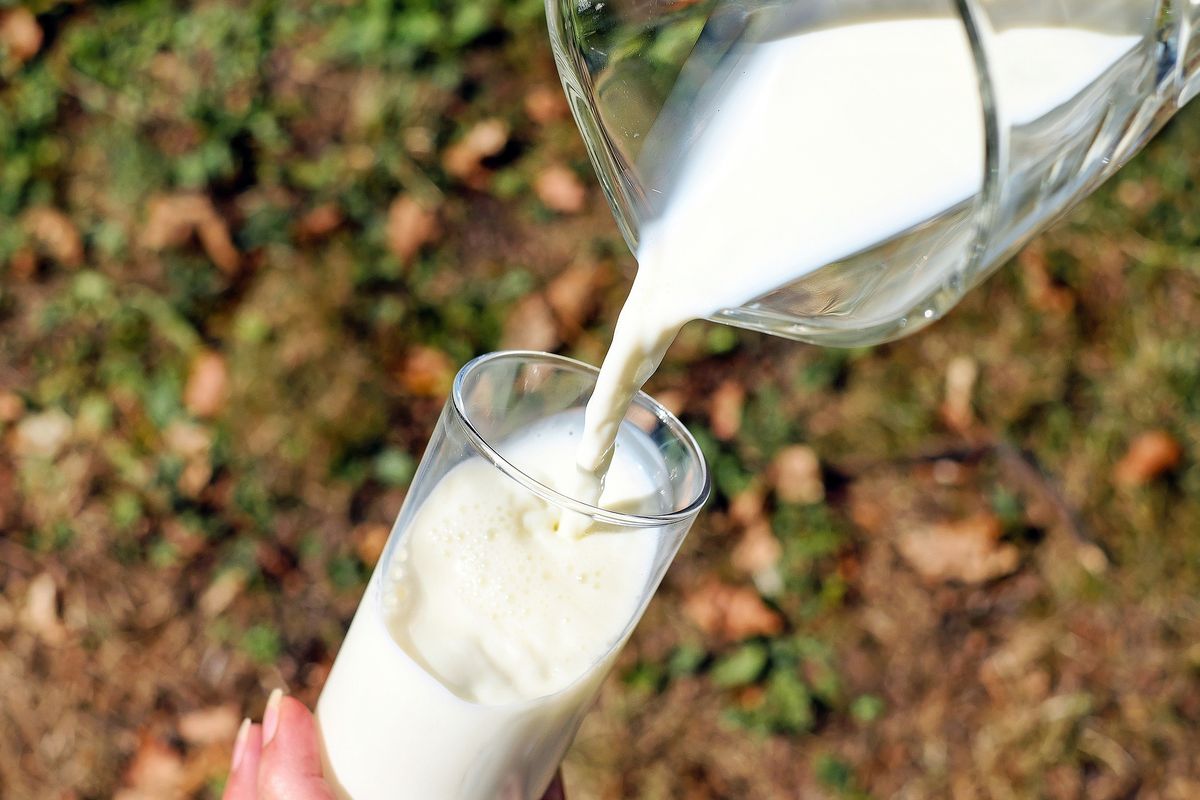
There’s nothing quite as relaxing as a warm glass of cocoa made with fresh milk. Milk is the basis of so many recipes and beverages that people love and consume on a daily basis. But when it comes to how to properly prepare milk, there can be a lot of disagreements. One common area of discontent is whether or not milk can be heated in a microwave.
You might have been taught that this was bad for you as a child growing up. Or it might have been a perfectly normal part of your daily routine to pop a glass of milk in the microwave. Regardless, you’re here because you want to know if you should be microwaving milk. The answer is complicated. Technically you can microwave milk, but that doesn’t mean that you should be doing it to all types of milk.
Can You Microwave Milk?
When most people think milk, they automatically think of cow’s milk. Cow’s milk has become a daily staple food for many families and has been for many decades largely due to strategic marketing and the belief that it is a superfood.
Studies surrounding the effects of cow’s milk on the body have been contradicting. Several recent studies suggest milk may have harmful effects on the body while other research points to a myriad of health benefits of dairy.
Like for instance, milk is thought to provide 18 out of 22 essential nutrients needed by the human body. Researchers and scientists claim cow’s milk contains more calcium, magnesium, phosphorus, potassium, zinc, and protein per calorie than any other food consumed by a human being.
What Are the Different Types of Milk And How They React To Microwaving.
But back to the matter at hand. How does regular cow’s milk react to microwaving? Cow’s milk holds up pretty well to heating overall, once it’s gradual and controlled. This means that the heat must be kept at a constant temperature, preferably under 200 degrees Celsius to avoid over cooking the milk and destroying the calcium and protein particles.
How Do Other Types of Milk Hold Up in the Microwave?
With a growing consciousness about the impacts of food on the overall health and well-being of humans, many people are beginning to turn to plant based milk as substitutes for the common cow’s milk. Research shows that plant and nut-based milks are suitable for individuals who are lactose intolerant or vegan.
Soy Milk
One of the most common cow’s milk substitutes is soy milk. Soy milk is extremely versatile and can be used for pretty much any application that cow’s milk is generally used for. Despite its versatility, however, soy milk does not hold up well to being heated, whether in a microwave oven or otherwise. Soy milk curdles at high temperatures, forming coagulated solid pieces that float on top of the milk.
The fact is that, while physically soy milk does not seem to differ a lot from cow’s milk, chemically, it differs a whole lot and has a different heat profile.
This means that while you can heat it in the microwave, you will have to do so slowly and gradually.
Almond Milk
Almond Milk is another great regular milk substitute, and it tastes great too! While chemically different from cow’s milk, the heating procedure is pretty much the same. Microwaved almond milk will heat up and fill the room with the nutty roasted aroma of flavorful Almonds. Avoid heating for too long though, as this could lead to burning. Two minutes on low heat should be adequate in most microwave ovens.
You Might Be Interested: Can You Microwave Glass?
What’s The Verdict with Microwaving Milk?
Whether it’s plant based or animal derived milk, it should be heated gently and slowly. As it regards cow’s milk, too much heat can result in a scorched flavour and a thick film on the top of the milk. For plant based milk such as soy, excess heat can lead to coagulation and hardened milk particles.
For the best results, know your milk and it’s boiling point. Always microwave in microwave-safe container and on low to medium-high heat. As a best practice for soy milk, microwave in increments of 30 seconds until it heats up to the temperature that you like.
Please Note: Cow’s milk expands and foams rapidly once it reaches its boiling point so be very careful not to overheat because things can get very messy, very quickly.
Boiled cow’s milk can also be extremely hot so allow heated milk to cool off for a few seconds before trying to handle it.